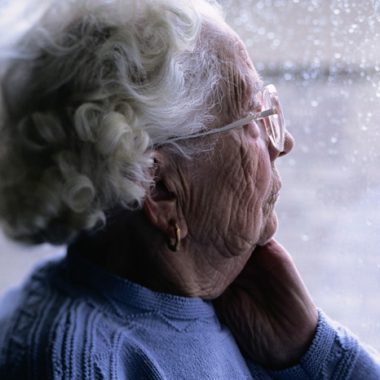Exclusive GPs in the West Midlands are set to be paid £150 per patient to diagnose and treat dementia as part of a scheme to cut delays to diagnosis caused by pressures on memory clinics.
NHS Dudley CCG said the incentive scheme will see GPs diagnosing and initiating the treatment of the ‘less complicated’ cases of dementia, mainly in the elderly – or refer them to another GP practice that will.
It comes as NHS chiefs have called for GPs to take more responsibility for diagnosis and care of patients with dementia, after the Government’s dementia strategy saw specialist memory assessment clinics become overwhelmed with referrals.
The CCG said the initiative was designed to help cut delays in diagnosis in line with ‘national guidance that well-trained, experienced GPs can diagnose dementia once it is established’.
Commissioners proposed the measures after finding that locally patients currently wait an average of 13 weeks to be seen by the local memory clinic.
The CCG spokesperson said they hope the scheme ’will take the pressure off the dementia assessment service so that patients with milder dementia or abnormal presentations can be assessed by specialists much sooner’.
The scheme, which launches this month, requires GPs to attend initial training with a consultant psychogeriatrician, after which they will be asked to ‘consider diagnosing dementia, predominantly in patients over the age of 75, when they feel confident to do so and the diagnosis is less complicated’, said NHS Dudley CCG.
Under the incentive scheme, practices will be paid:
- £150 for each patient they diagnose (whether it’s their own patient or one referred onto them);
- or, £50 for each patient they refer on to another practice who subsequently receives a diagnosis from that practice.
GPs will also be expected to initiate anticholinesterase treatment in patients they diagnose ‘if they feel safe doing so’, with advice on hand from practice based pharmacists ‘if required’.
Younger patients and those in risk groups will continue to be referred to the dementia assessment service, the CCG said, adding that GP practices would be subject to ‘a thorough assessment’ to qualify for payment under the scheme.
Dr David Hegarty, NHS Dudley CCG chair and a GP in Stourbridge, said: ‘Our aspiration is not to persuade GPs to diagnose dementia but to facilitate information so GPs can feel safe about diagnosing dementia in certain clinical situations.
‘In the future, rather than referring all people to the dementia assessment service for diagnosis we hope to encourage more GPs to make that diagnosis quickly in primary care. This is in direct response to the feedback we have had from carers about the impact of a delayed diagnosis.’
But Dr Uzma Ahmad, West Midlands GPC representative, said: ‘I really would be interested to see how it will materialise as I don’t really think GPs have the time.
‘Although they say it is just easy, less complicated cases in over-75s – ok some cases may be easier, but they can still be tricky – you cannot reach a diagnosis until you make a proper careful assessment that takes time and we don’t have the time at the moment to do that.’
NHS England introduced a controversial DES in mid-2014/15 which paid GPs £55 for every patient dementia diagnosis they made by the end of the financial year, to help hit the Government’s target of two-thirds of the estimated population with dementia to have a diagnosis.
But NHS chiefs did not renew the scheme after outcry from some in the GP profession who said it amounted to ‘cash for diagnosis’ and was ‘unethical’.
The dementia diagnosis drive
Networks of memory clinics were specifically set up to deal with the diagnosis drive under the previous Government’s dementia strategy – with the imposition of an unpopular ‘dementia DES’ under which GPs were incentivised to screen patients for memory problems and refer anyone considered at risk to the clinics for specialist assessment.
GP critics warned at the time that the DES would lead to memory clinics becoming swamped with referrals for mild or inconsequential memory impairment, leading to delays in diagnosis for those with more serious illness. The GPC opposed its introduction.
The Dudley initiative follows long-term calls from NHS England dementia tsar Professor Alistair Burns for GPs ‘upskilled’ to take on more diagnosis and care of dementia, to help ease backlogs in referrals to memory clinics, and Government plans for GPs to start managing dementia like other long-term conditions.
An investigation by Pulse last year revealed that the dementia screening DES – which was expanded two years ago before being dropped from last year’s GP contract – had led to massive rise in the proportion of patients referred to memory clinics who turned out not to have dementia – or ‘false alarms’.
















